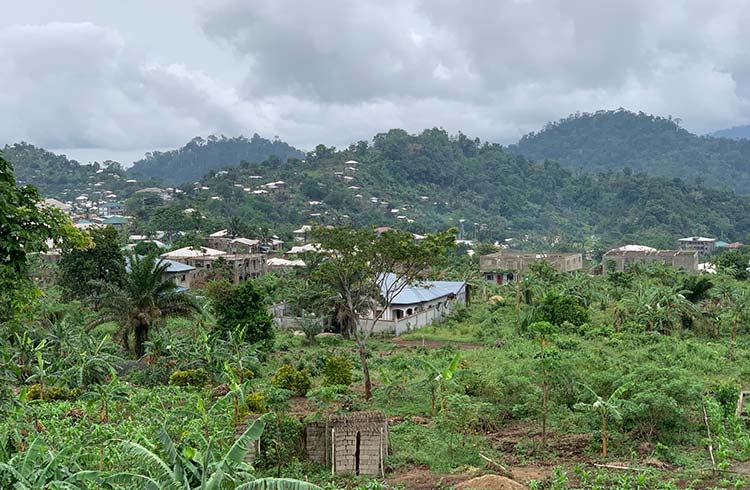Travel Health Tips and Local Customs in Cameroon
Here are a few things you should know about health, money and etiquette in Cameroon.
 Photo © Getty Images/
Photo © Getty Images/
Cash and currency in Cameroon
You would be wise to only use cash in Cameroon - the Central African Franc (FCFA) is the only form of payment in much of the country.
Credit cards are accepted in some establishments, but fraud is endemic.
Counterfeit currency is a growing problem.
Make sure you always have lots of small bills as many vendors, market stalls and taxi drivers will never have enough change, even for fairly small bills.
Photography etiquette in Cameroon
While photography is not officially forbidden, security officials are sensitive about photographs taken of government buildings, military installations, and other public facilities, many of which are unmarked. Photography of these subjects may result in seizure of photographic equipment by Cameroonian authorities.
Due to the threat of harassment and the lack of signs designating sites prohibited for photography, and the fact that some Cameroonians object to having their picture taken, photography should be limited to private homes and among friends.
You should seek proper permission before taking a photograph of a specific subject or location.
Travel health tips
Malaria is a serious problem in Cameroon and is resistant to the anti-malarial drug chloroquine. Instead try: mefloquine, doxycycline, or atovaquone/proguanil (Malarone) as prophylaxis to reduce this risk.
Chistosomiasis in endemic in Cameroon. Avoid exposure to fresh water.
The cholera outbreak is ongoing and health authorities continue to issue warning notices across the country. In 2010 cholera claimed more than 500 lives with over 7,800 confirmed cases. There are regular cholera outbreaks between the months of December and June with Douala city, Littoral province and the West and South West provinces the areas most usually affected.
You should drink or use only boiled (for at least three minutes) or bottled water and avoid ice in drinks. If you suffer from diarrhoea during a visit to Cameroon you should seek immediate medical attention.
Medical facilities in Cameroon are extremely limited. Emergency care and hospitalization for major illnesses and surgery are hampered by the lack of trained specialists, outdated diagnostic equipment and poor sanitation. Medical services in outlying areas may be completely nonexistent. Doctors and hospitals often require immediate payment for health services in cash and require family members or friends to locate and purchase any medical supplies they will need. Pharmacies in larger towns are well stocked, but in other areas many medicines are unavailable. You should carry your own supply of needed prescription and anticipated over-the-counter medicines.
Vaccinations for travelers to Cameroon
You should consider the following vaccinations before travelling:
- Hepatitis A & B
- Typhoid
- Meningococcus
- Rabies
- Yellow Fever (vaccination certificate required for entry into Cameroon)
- Revaccination / booster shots for Measles, Mumps and Rubella and Tetanus-Diptheria
Simple and flexible travel insurance
You can buy at home or while traveling, and claim online from anywhere in the world. With 150+ adventure activities covered and 24/7 emergency assistance.
Get a quote
No Comments